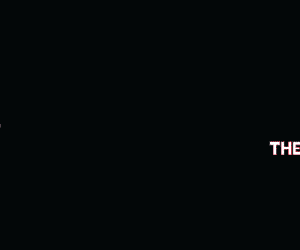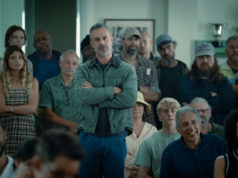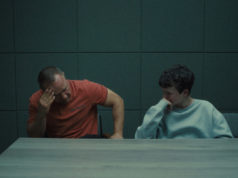I had a lot of thoughts about the film Waiting for “Superman” that I couldn’t get into this week’s Film Shorts. This documentary an infuriating movie on many levels, not only because it depicts widespread incompetence in America’s public education system, but also because it fails to address many of the questions that it raises. I thought I’d raise a few points and throw open the comments section to debate.
The film is by Davis Guggenheim, who’s best known for making Al Gore a star in An Inconvenient Truth. What’s holding back our schools? According to Guggenheim, the culprits include: a decentralized system that presents educators with an arcane jumble of conflicting regulations and allows individuals to escape accountability when a school goes bad; the practice of “tracking,” which once made sense when most of America’s children were destined to work on farms or factories, but no longer serves any purpose in an economy based on information and services; and teachers’ unions, which (the film takes pains to point out) provide a valuable service to a historically underpaid profession but have become so powerful and entrenched that it’s difficult to get rid of even the worst teachers, let alone effect change on a large scale.
The film describes public schools rotating bad teachers amongst themselves, hoping that they’ll somehow become more effective in a different setting. Some places call this routine The Dance of the Lemons. (Here’s the phrase being used in 2006.) The animated sequence in the film illustrating this concept was done by the firm of Awesome + Modest.
Guggenheim takes a page from Michael Moore and uses a lot of animated graphics, pop songs, and movie clips to make his points in a humorous way. However, the human element in his movie is four small children — Anthony in Washington, Daisy in L.A., Francisco and Bianca in New York — trying to escape their failing public schools for charter schools with limited space. These kids are all lucky, in a way, because they’ve got parents or parental figures who care deeply about their schooling. Still, we see how difficult it is for them to get good schooling. How much harder it must be for kids who get no encouragement at home.
(By the way, these kids are all minorities who attend overcrowded urban schools, but the film argues that the same problems are also present at prosperous white suburban schools. The difference is that the top achievers at the white suburban schools skew the test results and mask the underachievement of everybody else. I don’t know where to go for statistics on this, but it would be fascinating to see how true that is.)
Non-expert on education though I am, I found a few gaps in Guggenheim’s arguments. He presents controversial former Washington D.C. school superintendent Michelle Rhee as a crusading heroine. (She stepped down from her post yesterday, though not without launching a new website.) The movie rightly extols her innovative ideas for reform, and she makes a great interview subject. Still, it glosses over some legitimate issues that her critics might have had with her, like her supposed high-handedness in dealing with the entrenched system. The movie shows us parents angry over Rhee’s closing of underperforming schools, and makes the parents look like an angry mob when they might have been legitimately pissed over having to scramble to find new schools for their kids on short notice.
Waiting for “Superman” makes it seem impossible to get a good education at any public school anywhere, even though I don’t think that’s what Guggenheim intended to say. We never see what a working public school looks like, only some charter schools that gleam like oases in the desert for parents who can’t afford private schools. The movie includes some forceful interviews with Microsoft founder Bill Gates, who’s also a huge fan of charter schools. Yet are they really a magic bullet? The numbers say no. Indications are that the charter schools that do succeed, do so because of staff that devotes large amounts of attention to individual students. Can we replicate this across a country as large as ours?
I wish the movie had gone more into how other countries handle their education. American students lag behind most of the developed world in academic achievement. Shouldn’t we ask what the differences are? India and China have even larger populations to educate. It seems like there’s something that could be learned from studying their systems.
I think we can all get behind the idea of replacing bad teachers with good ones, but how do we find good ones? What criteria do we use? How do we train them? How do we attract talented people to the field of education? Higher pay? Merit pay? Government incentives? The film doesn’t say.
Waiting for “Superman” ends with the four kids participating in lotteries to determine who gets a precious slot in a charter school. It’s a terrific piece of drama; no matter what you think about education, you can’t help feeling that the entire process that these kids are subjected to is monstrously unfair. Anthony, Daisy, Francisco, and Bianca remind us that we need to fix the system. The movie argues persuasively that it’s not failing neighborhoods that produce failing schools, but failing schools that produce failing neighborhoods. Logically, if schools all over America are failing, then the nation will fail. It’s good that the film calls on us to find a solution, even if it thinks a solution will be easier to come by than it probably will be.
By the way, the title really doesn’t need quote marks. I’m speaking to you now because once upon a time, an English teacher showed me that movies and TV shows were as much in need of smart criticism as the Shakespeare and Hawthorne that we were reading in class. Mr. LaBonte, if you’re reading this, your former student says “Hi.” Hope I’m doing good.











